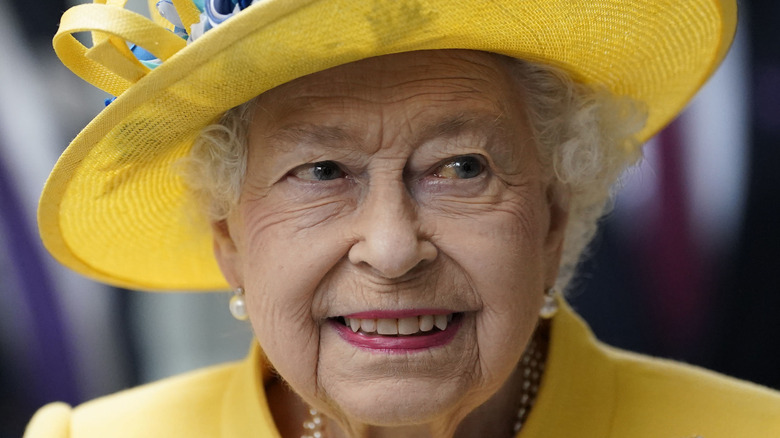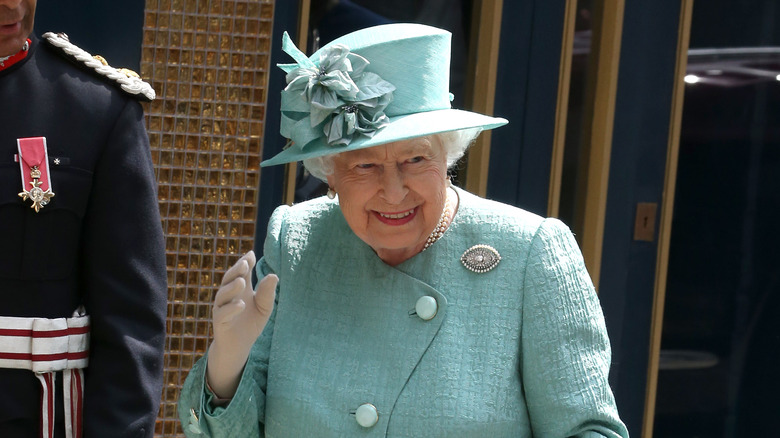Why The Internet Thought Queen Elizabeth Once Threw Food At Kids
Sometimes, things aren't as black and white as they seem. This is evident in some of the rumors and misconceptions about Queen Elizabeth II and the whole royal family. One rumor that has since been cleared up is that the queen drank four alcoholic beverages a day. Former Royal Chef Darren McGrady quickly shut down the claim, which has been attributed to him in articles. "She certainly doesn't drink four glasses a day," he said to CNN. Though that misconception may not have created a serious backlash, one that recently circled the internet has much more damage potential.
In the days following Queen Elizabeth II's death, thousands of people in Britain gathered to pay their respects, even lining up as her hearse passed by, according to The Washington Post. However, some Twitter users made it clear that they would not be mourning. "Africans cannot mourn the death of #QueenElizabethII," tweeted EngagedCitizen. The user wanted eternal suffering for "all others who brought problems to our ancestors." Along with the fiery message, they shared a video of what various people claimed was the queen tossing food at children, per Reuters. However, appearances can be deceiving, and the resulting anger could stem from far deeper issues.
The film was too old to depict the queen
Just a few days ago, a video surfaced on Facebook. "This is the Queen herself throwing food to African kids like chicken and then you all have the audacity to post and type Rest in [Peace]," the caption read. A lady in with a large hat can be seen tossing something for children to grab. But according to Reuters, the video depicts French women throwing coins in Indochina. Made by the famed French filmmakers Lumière brothers, it has a title that means "Annamese children picking up cash in front of the Ladies' Pagoda" in English. It was filmed about a quarter-century before the queen was born.
Though the food-throwing claim was debunked, there are other reasons people might not be fans of the queen. For some people, she represents the painful history of British colonialism (via Time), which included the subjugation of numerous African nations. While the queen didn't colonize countries, during her first eight years as a monarch, Kenyans rebelled for their freedom from Britain. The conflict resulted in at least 10,000 deaths, according to France 24. "The Queen leaves a mixed legacy of the brutal suppression of Kenyans in their own country and mutually beneficial relations," The Daily Nation, a Kenyan newspaper, wrote. In the end, while the queen was not shown throwing food at Africans, it might not have mattered much for EngagedCitizen. Their Twitter comments may well have been referencing much more.

